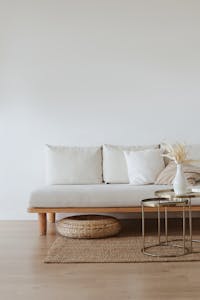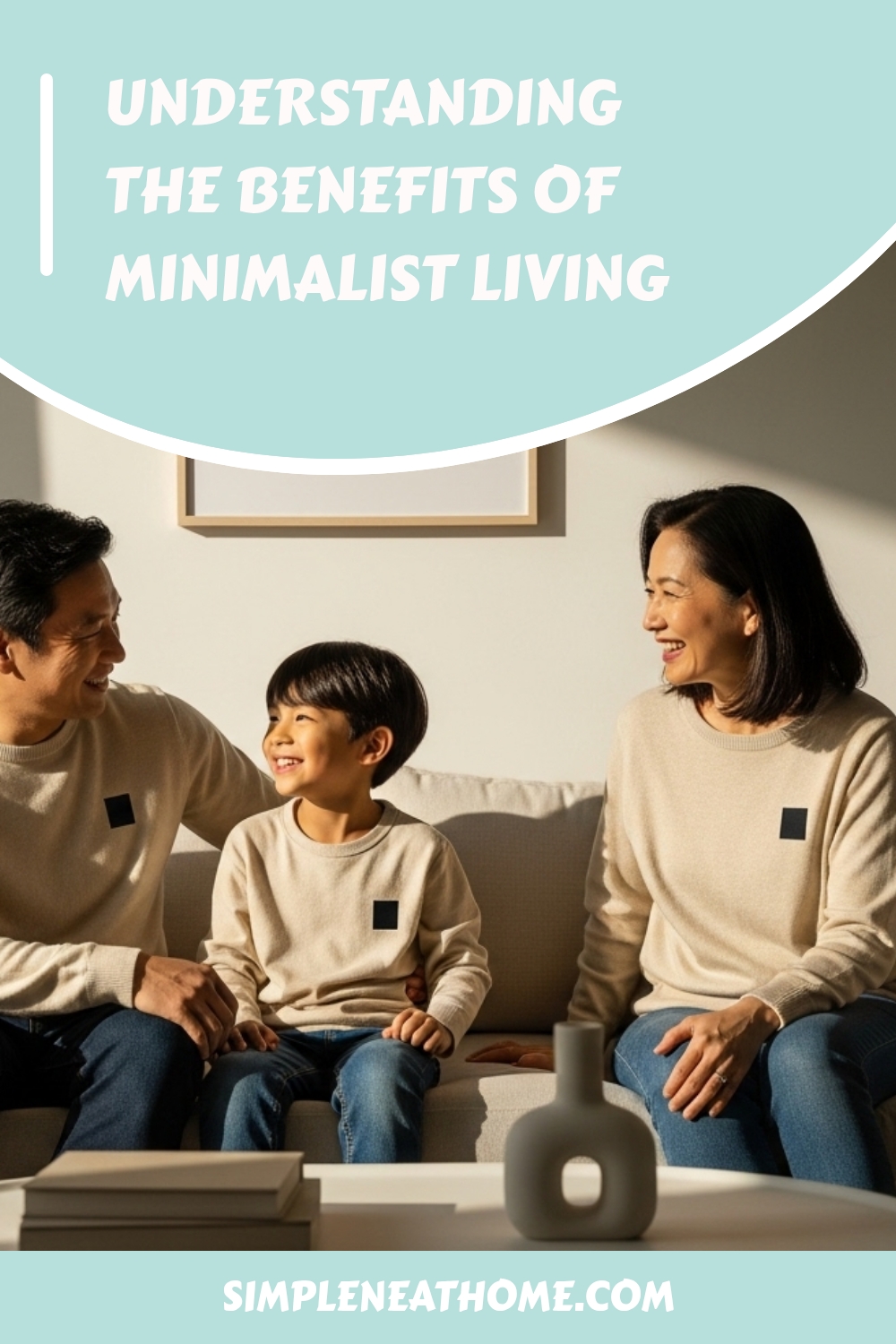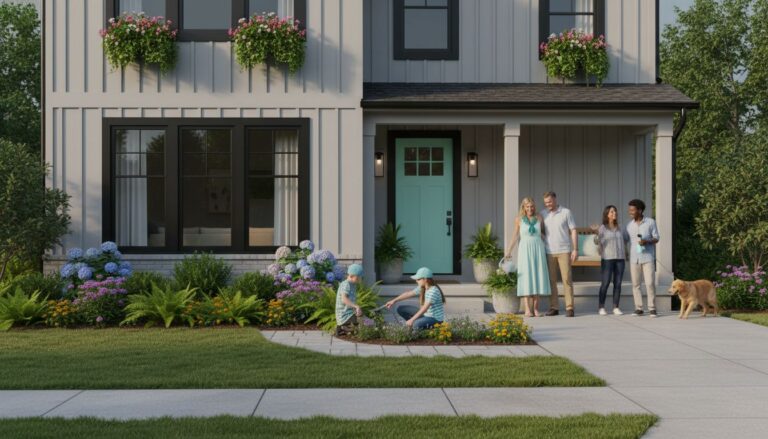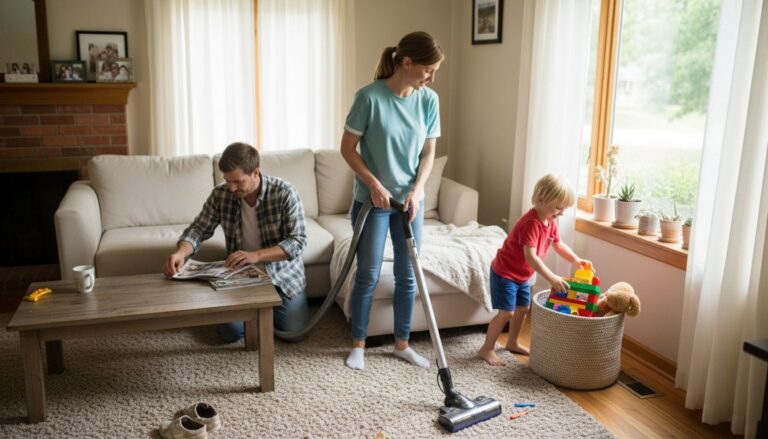Understanding the Benefits of Minimalist Living
Minimalist living is changing how people define happiness. Nearly 60 percent of those who adopt minimalist practices report lower stress and higher life satisfaction. It sounds like giving up your stuff would make life feel empty. Actually, this approach does the opposite. Cutting back on clutter opens up more room for clarity, calm, and freedom every single day.
Table of Contents
- What Is Minimalist Living And Its Core Concepts?
- Why Minimalist Living Matters For Mental Health And Well-being
- How Minimalist Living Works In Everyday Life
- The Relationship Between Minimalism And Sustainable Living
- Real-World Examples Of The Benefits Of Minimalist Living
Quick Summary
| Takeaway | Explanation |
|---|---|
| Embrace intentional living for happiness | Minimalism emphasizes that happiness stems from experiences and personal growth rather than material possessions. |
| Reduce clutter for mental clarity | A cluttered environment can heighten stress and anxiety; minimalism creates mental space for what truly matters. |
| Evaluate every item for true value | Apply minimalism daily by assessing your possessions and commitments through the lens of their genuine contribution to your well-being. |
| Practice sustainable consumption | Minimalism encourages thoughtful consumption, leading to reduced waste and a smaller carbon footprint through quality-focused purchasing. |
| Choose quality over quantity in life | Prioritizing fewer, high-quality items leads to enhanced satisfaction and less financial pressure in the long run. |
What is Minimalist Living and Its Core Concepts?
Minimalist living is a purposeful lifestyle approach focused on simplifying your environment and reducing unnecessary possessions. Learn more about the essence of minimalist living and how it can transform your daily experience.
The Philosophy Behind Minimalism
At its core, minimalism is about intentional living. According to research published in Sustainable Production and Consumption, minimalism represents a deliberate paradigm shift in consumer behavior. It challenges the traditional notion that more possessions equal greater happiness. Instead, minimalists believe in focusing on experiences, relationships, and personal growth rather than accumulating material goods.
Key principles of minimalist living include:
- Reducing unnecessary consumption
- Prioritizing quality over quantity
- Creating space for meaningful experiences
- Eliminating physical and mental clutter
Practical Application of Minimalist Concepts
Minimalist living isn’t about living with nothing. It’s about being strategic with what you choose to keep in your life. This approach applies to physical spaces, digital environments, relationships, and personal commitments. By deliberately selecting items and activities that add genuine value, you create more room for what truly matters.
The following table organizes the key psychological and practical benefits of minimalist living, as described throughout the article, for quick reference and comparison.
| Benefit | Description |
|---|---|
| Reduced stress and anxiety | Minimalism creates a calmer environment by minimizing visual and mental distractions. |
| Increased mental clarity | Fewer possessions and obligations help improve focus and clear decision-making. |
| Financial freedom | Limiting unnecessary purchases and prioritizing quality can lead to increased savings. |
| Enhanced well-being | A minimalist lifestyle supports overall life satisfaction and emotional resilience. |
| Improved productivity | Simplified spaces and routines decrease overwhelm and foster better time management. |
| Stronger relationships | Focusing on meaningful experiences creates deeper personal connections. |
| Environmental sustainability | Thoughtful consumption and reduced waste contribute to a smaller ecological footprint. |
People who embrace minimalism often report increased mental clarity, reduced stress, and greater financial freedom. They learn to distinguish between wants and needs, making more intentional choices about their time, energy, and resources. The goal is not deprivation but creating a life that feels authentic, purposeful, and unburdened by excess.
Why Minimalist Living Matters for Mental Health and Well-being
Minimalist living isn’t just about organizing your physical space. It’s a powerful approach that directly impacts your mental health and overall well-being. Learn more about creating a calm home environment to understand this transformative lifestyle.
The Psychological Impact of Clutter and Excess
Clutter isn’t just a visual distraction.
According to research published in Therapy Tips, a disorganized environment can significantly affect your mental state. Women who described their homes as less cluttered experienced decreased depressed mood throughout the day. This scientific insight reveals how your physical surroundings directly influence your psychological well-being.
The mental burdens of excess possessions include:

- Increased stress and anxiety
- Reduced ability to focus
- Feelings of being overwhelmed
- Decreased productivity
- Emotional attachment to unnecessary items
Creating Mental Space Through Minimalism
Minimalist living acts as a form of mental decluttering. By intentionally reducing physical possessions, you create psychological breathing room. This approach allows your mind to focus on what truly matters experiences, relationships, and personal growth. When you’re not constantly managing, cleaning, or thinking about unnecessary things, you free up mental energy for more meaningful pursuits.
The benefits extend beyond just feeling less stressed. Minimalism helps you develop a more intentional mindset. You learn to make deliberate choices about what you allow into your physical and mental space.
This table summarizes the practical strategies for implementing minimalist principles in daily life, helping readers visualize common areas of impact and suggested actions.
| Area | Minimalist Strategy | Intended Benefit |
|---|---|---|
| Personal wardrobe | Choose versatile, quality clothing items | Simplifies dressing and storage |
| Digital habits | Reduce screen time and unsubscribe from distractions | Improves focus and digital well-being |
| Financial spending | Limit non-essential purchases, buy quality | Reduces debt and financial pressure |
| Home organization | Regularly declutter and organize spaces | Creates a calm and manageable environment |
| Social commitments | Prioritize meaningful relationships | Enhances connection and personal growth |
How Minimalist Living Works in Everyday Life
Minimalist living transforms your daily routine by shifting how you interact with possessions, time, and personal resources. Check out our guide on reducing household clutter to start your minimalist journey.
Making Intentional Choices
According to research in the International Journal of Environmental Research and Public Health, minimalism is about making deliberate choices that enhance life satisfaction. This means evaluating every item, commitment, and activity through a lens of true value and purpose.
Key areas where minimalism impacts everyday life include:
- Personal wardrobe selection
- Digital consumption and screen time
- Financial spending habits
- Home organization
- Social commitments and relationships
Practical Implementation Strategies
Minimalist living isn’t about extreme deprivation. It’s a thoughtful approach to curating your life. Start by performing regular assessments of your belongings and commitments. Ask yourself critical questions: Does this item or activity genuinely contribute to my well-being? Am I keeping something out of obligation or genuine value?
The process involves continuous refinement. You might begin by decluttering your physical space, then gradually extend minimalist principles to other life domains. This could mean unsubscribing from unnecessary email lists, reducing social media consumption, or being more selective about social engagements. The goal is creating space for what truly matters personal growth, meaningful relationships, and experiences that bring genuine joy.

The Relationship Between Minimalism and Sustainable Living
Minimalism goes far beyond personal organization. It represents a powerful approach to environmental consciousness and sustainable living. Discover how minimalist choices can reduce waste and support ecological preservation.
Understanding the Ecological Connection
According to research in the journal Sustainability, minimalist values directly motivate individuals to adopt more sustainable living practices. The connection between minimalism and sustainability is rooted in conscious consumption and intentional resource management.
Key environmental benefits of minimalist living include:
- Reduced material consumption
- Lower carbon footprint
- Decreased waste generation
- More thoughtful purchasing decisions
- Extended product lifecycle
Minimalism as an Ecological Mindset
Minimalism transforms consumption from a mindless activity to a deliberate, environmentally conscious choice. By prioritizing quality over quantity, minimalists naturally reduce waste and support sustainable practices. This approach challenges the traditional consumer model of constant acquisition and disposal.
Practical examples include choosing durable, multi-purpose items, repairing instead of replacing, and being more selective about purchases. Minimalists tend to invest in high-quality products that last longer, thereby reducing overall resource consumption. The philosophy extends beyond personal possessions to broader lifestyle choices that prioritize environmental responsibility and conscious living.
Real-World Examples of the Benefits of Minimalist Living
Minimalist living isn’t just a theoretical concept. It’s a practical approach that transforms lives in tangible, meaningful ways. Explore how minimalism can improve your daily routine and discover its real-world impact.
Personal Transformation Stories
According to research from the American Psychological Association, people who declutter and adopt minimalist principles experience significant psychological benefits. These transformations often involve:
- Reducing chronic stress levels
- Improving mental clarity
- Creating more meaningful personal spaces
- Developing stronger decision-making skills
- Enhancing overall life satisfaction
One compelling example involves professionals who simplified their workspaces. By removing unnecessary items and focusing on essential tools, they reported increased productivity and reduced workplace anxiety. Another instance includes families who downsized their living spaces, discovering that fewer possessions led to more quality time and deeper connections.
Financial and Lifestyle Benefits
Minimalist living extends beyond personal psychology into concrete financial advantages. Individuals practicing minimalism often experience significant economic improvements. This might mean reducing unnecessary purchases, investing in quality over quantity, and creating more intentional spending habits.
Real-world practitioners report substantial changes like paying off debt faster, saving more money, and feeling less pressured by consumer culture. The minimalist approach isn’t about deprivation but about making strategic choices that align with personal values and long-term goals. By consciously evaluating each purchase and commitment, people create more financial breathing room and reduce stress associated with material accumulation.
Ready to Experience the Real Benefits of Minimalist Living?
Feeling overwhelmed by clutter and searching for a calmer, more intentional lifestyle? This article explained how excessive possessions create stress and block your path to mental clarity. If you want to truly simplify your home and reclaim your peace of mind, you need clear steps and practical encouragement.
Transform your days from chaos to calm. See other articles for actionable tips on decluttering your space, creating a peaceful home environment, and embracing the true principles of minimalist living. Explore more about how to turn your home into a sanctuary. Start your journey toward a lighter, happier life today.
Recommended
- What is Minimalist Living? Understand Its Essence | Simple Neat Home
- Understanding Ways to Reduce Household Clutter Effectively | Simple Neat Home
- 10 Things I’ve Stopped Buying Since Going Minimalist
- Understanding the Kitchen Organization Guide for Better Cooking | Simple Neat Home
- Understanding Smart Home Pros: The Future of Luxury Living
- Step by Step Household Hacks for Daily Efficiency – breezytips.com









